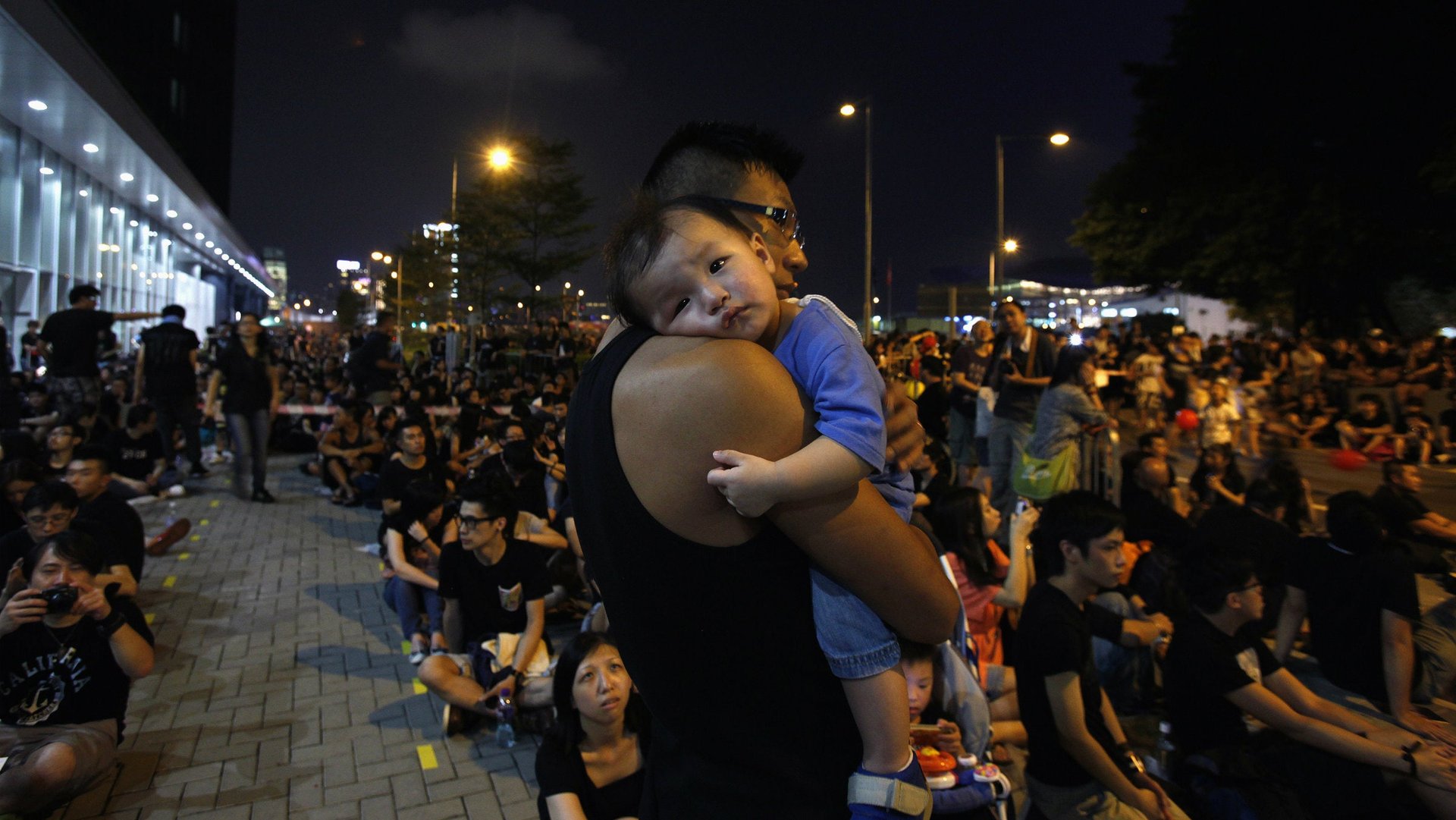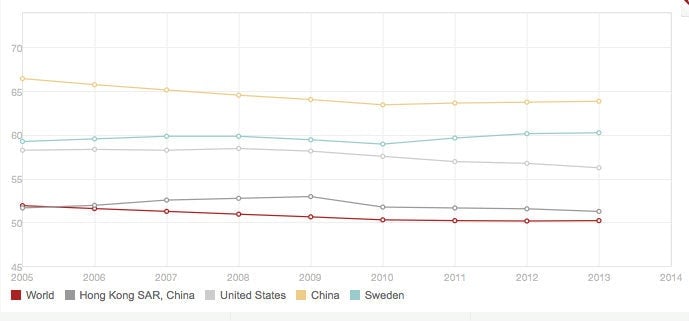After a lengthy battle, Hong Kong men have scored three days of semi-paid paternity leave
Hong Kong has been battling unsuccessfully against a declining birth rate that will leave the city’s median age at 52 this year and saddle the city’s youth with outsized social burdens in years to come. So far, the city government has mostly defined the low birth rate as a woman’s problem, pinpointing “spinsterhood” as one of key causes.


Hong Kong has been battling unsuccessfully against a declining birth rate that will leave the city’s median age at 52 this year and saddle the city’s youth with outsized social burdens in years to come. So far, the city government has mostly defined the low birth rate as a woman’s problem, pinpointing “spinsterhood” as one of key causes.
Maybe it shouldn’t be too surprising, then, that it took an eight-year battle for the city’s men who are employed by private companies to be legally granted (pdf) the right to three days of paternity leave—at 80% pay. The law, passed Dec. 18, was heralded as a “a milestone in the advancement of labor rights in Hong Kong after more than eight years’ discussions in the community,” by the city’s secretary of labor, without apparent irony. Employers groups had opposed the bill, because they believe mandated paternity leave could harm Hong Kong’s small and mid-sized companies, which make up 98% of the city’s businesses.
With its new three-day paternity leave guarantee, Hong Kong now ranks alongside Algeria and Mali, and behind other countries not necessarily known for their worker-friendly regulations, including Croatia, Brazil and the Philippines, according to the ILO. (It still ranks better than the United States’ paid paternity leave mandate, which is zero.) As Quartz has previously reported, expanding paternity leave, not just maternity leave, is key to keeping women in the workforce, which is a necessity for continued economic growth, and a potential booster of birth rates.
The three days isn’t likely to push many women back into the workforce, something else the government is trying to encourage. Currently, Hong Kong has a higher female labor force participation rate than the global average, but still lags far behind China, the US and many European countries, according to World Bank data:

Some legislators in Hong Kong described the bill itself as “miserly,” and not just because of the short time off.
“Multiple births in one pregnancy are taken to be one confinement,” the law specifies, so there’s no extra days off for twins, and it “does not apply to a miscarriage.” And somewhat impractically, given the unpredictable nature of childbirth, men are required to tell their employers “of each intended date of his leave at least 2 days before that date.”